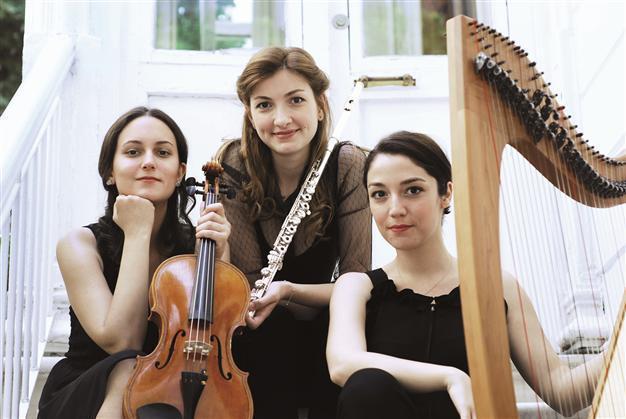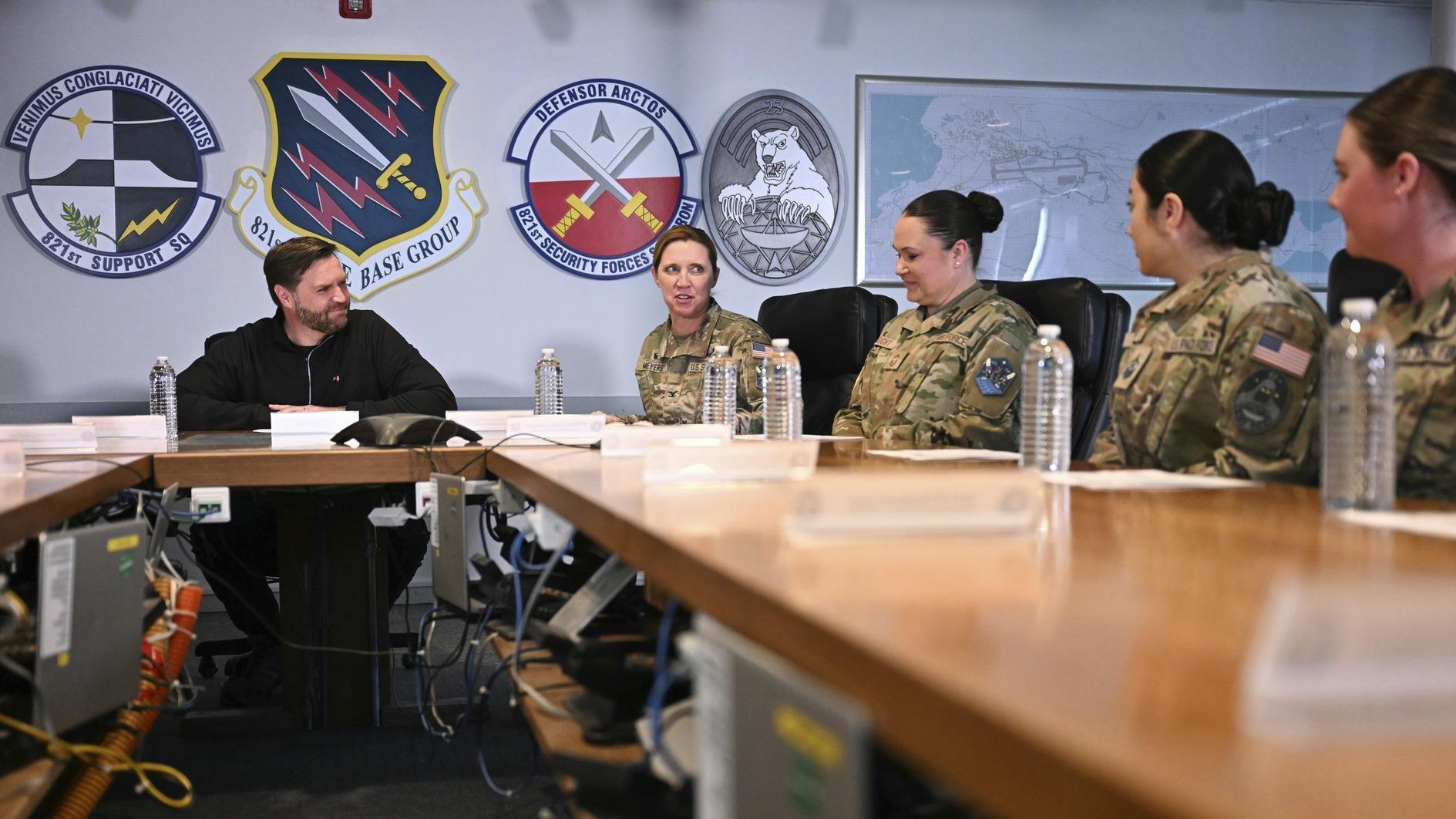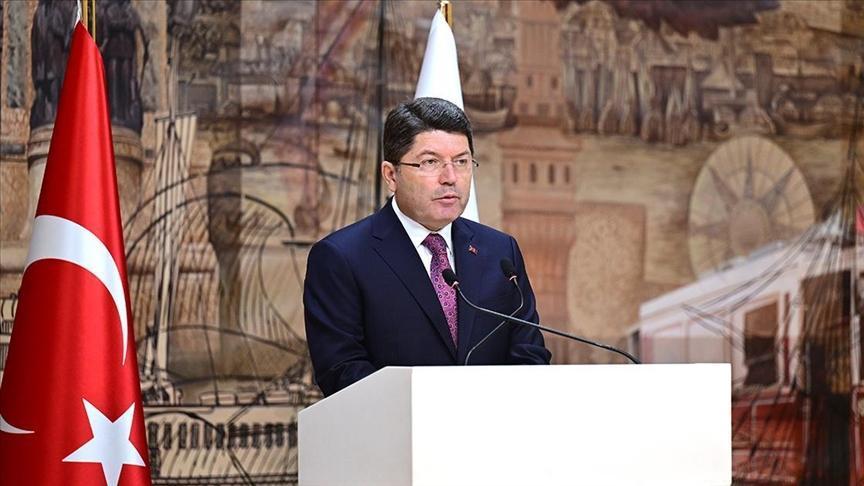Chamber music trio to give concert in memory of late Turkish harpist Necipoğlu
Deniz Çiyan ISTANBUL
 Trio Pax, a chamber music ensemble consisting of a flute, viola and harp, is preparing to give its first concert in remembrance of the late Turkish harpist Ceren Necipoğlu at the Notre Dame de Sion High School in Istanbul on Dec. 18.
Trio Pax, a chamber music ensemble consisting of a flute, viola and harp, is preparing to give its first concert in remembrance of the late Turkish harpist Ceren Necipoğlu at the Notre Dame de Sion High School in Istanbul on Dec. 18. Harpist Meriç Dönük, flutist Zeynep Keleşoğlu, and viola player Günsu Özkarar, who recently formed Trio Pax, said they were happy to be able to play the rich repertoire that the three harmonious instruments have.
“There is a wonderful repertoire for harp, flute and viola and we are very happy to have found and established the trio to play these,” the trio told the Hürriyet Daily News.

The trio said a number of new compositions written in memory of Necipoğlu were going to make their debut in the Dec. 18 concert. ASD Harp Masters Academy 2014 scholar Cansu Çine will join the trio in the first half of the concert, while soprano singer Natali Boğosyan will play in the second half.
Viola player Özkarar, who recently returned back from Switzerland where she earned her master’s degree, said that although chamber music is very hard to perform it is also very enjoyable.
“The difficulty [of chamber music] lies in coming together to produce a joint musical idea of individuals from different characters and ideas, and different instruments of various timbres. Everyone has to leave aside their ‘ego’ and try to become ‘one’ so that a common product can be achieved. This means you always must have your receptors open, to listen to and understand each other. Therefore, you try to attune yourself to each other and to the music,” she said.
Özkarar said their aim in playing together as Trio Pax was to set an example of how great an end product can be when individuals listen to each other and work in harmony. The name of the ensemble, “pax” (meaning “peace” in Latin), is linked to this purpose.
The flutist of the trio, Keleşoğlu, who plays in one of Turkey’s most prestigious orchestras, the Borusan Philharmonic Orchestra, contributed to Özkarar’s words by saying that with chamber music one could learn to harmoniously play together, to blend the timbres of the instruments and to be “one.”
“In orchestras, which are much bigger ensembles, you play a composer’s piece and what he or she had in mind according to the pulse of the conductor. However, chamber music blends the musician and the composer without any intermediaries. This brings an open freedom to the musician and the soul of the music,” said Keleşoğlu.
Discussing the current situation of classical music in Turkey, harpist Dönük, who is also involved in projects in a variety of musical genres, said overall variation was diminishing because all products are on digital platforms and record labels are choosing not to make albums.
Dönük said she was not hopeful about the future of classical music practice in Turkey, as its practitioners in the country are generally not very open to innovations compared to other countries, resulting in a lack of unique works being produced.
Keleşoğlu, however, suggested that this was a broader problem not limited to Turkey, with classical musicians around the world anxious about the future of their craft. However, state policies in Turkey do not help.
“The state unfortunately does not have a meaningful, consistent and permanent culture and arts policy. Despite all of the negativity, indisputable successes still manage to arise from this country, but they are not enough because creativity will be restrained as long as arts are approached from a trade [perspective],” said Keleşoğlu.
Overall, Trio Pax believe that the future of classical music in Turkey lies very much in the education system, and say polyphonic music should be introduced to the yearly curriculum of all music classes.
















